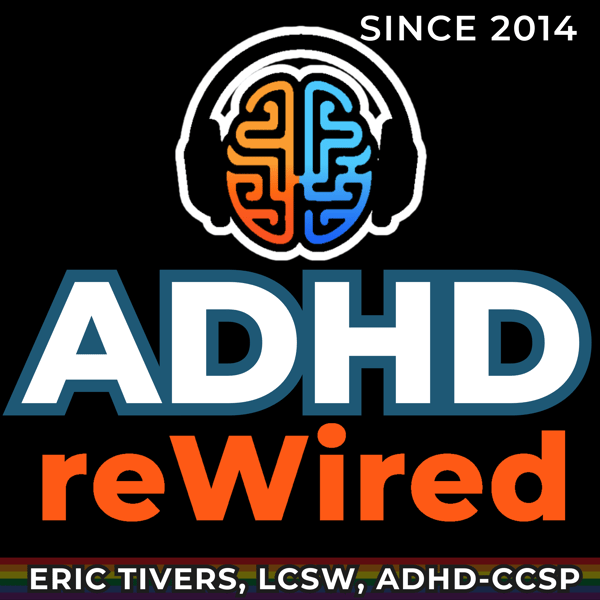91 | Sensory Processing, Filtering, and ADHD – A Talk with a Neuroscientist
ADHD reWired
Eric Tivers, LCSW, ADHD-CCSP
4.7 • 919 Ratings
🗓️ 24 November 2015
⏱️ 79 minutes
🧾️ Download transcript
Summary
Transcript
Click on a timestamp to play from that location
| 0:00.0 | So once we have decided that we need to make a phone call, we would basically enhance the representation and strengthen the representation of the phone in the brain, and we would diminish the representation of the computer in the brain. |
| 0:14.0 | So one is the selection and the other one is the filtering. |
| 0:17.2 | That in the normal brain, the selection and the filtering are interconnected, |
| 0:22.4 | so the filtering comes for free in a sense. |
| 0:25.0 | In the ADHD brain, you basically have both of these processes need to be directed. |
| 0:30.6 | You need to actively filter and you need to actively select so you're |
| 0:34.0 | basically doing double duty and that makes this attention network very inefficient and we |
| 0:39.1 | need to understand at the individual level what's going wrong and then we can help I think in much more |
| 0:45.7 | informed ways I think right now ADHD is treated as if it's one uniform condition but we know |
| 0:52.0 | this is not a uniform syndrome that we are looking at. |
| 0:55.6 | AED rewired episode 91. This is the show designed to help those of us who have really good |
| 1:07.3 | intentions and a slightly wandering attention. My name is Eric Tivers, my |
| 1:12.3 | licensed clinical social worker, coach and consultant. |
| 1:16.0 | We know that starting can be the hardest part, |
| 1:19.0 | so let's get started. |
| 1:22.0 | But first, let me thank our sponsors. |
| 1:25.0 | Support for this podcast comes from audible. For a free audio book download go to arrechtivers.com |
| 1:34.6 | slash audible for a link for that free download |
| 1:38.9 | and for some hand-picked recommendations. |
| 1:42.2 | Go to Eric Tibbers. |
| 1:43.3 | dot com slash audible for your free audiobook download. |
| 1:48.2 | I know how much you like to plan ahead. |
... |
Please login to see the full transcript.
Disclaimer: The podcast and artwork embedded on this page are from Eric Tivers, LCSW, ADHD-CCSP, and are the property of its owner and not affiliated with or endorsed by Tapesearch.
Generated transcripts are the property of Eric Tivers, LCSW, ADHD-CCSP and are distributed freely under the Fair Use doctrine. Transcripts generated by Tapesearch are not guaranteed to be accurate.
Copyright © Tapesearch 2025.

